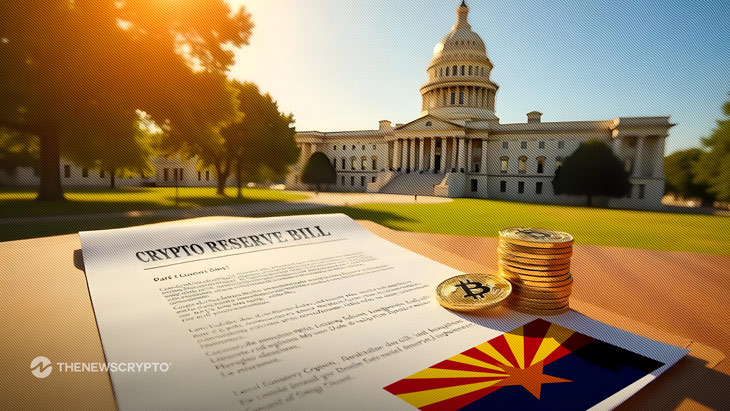Arizona’s SB 1373 crypto reserve bill advances and awaits a final House vote amid growing state interest.
Governor Hobbs’ veto pledge may block SB 1373 despite legislative support.
Arizona’s Strategic Digital Assets Reserve Bill SB 137, has moved closer to becoming law after clearing the House Committee of the Whole on April 17. The bill now heads for a final House reading and floor vote. If approved, it will be forwarded to Governor Katie Hobbs for official review. The legislation has drawn attention as Arizona considers integrating digital assets into its financial systems.
ARIZONA Update:
Bitcoin Reserve Bill SB 1373 has been passed by the House Committee of the Whole (with a minor amendment).
The next step is Third Reading and final floor vote. pic.twitter.com/oOahjbZATR
— Bitcoin Laws (@Bitcoin_Laws) April 17, 2025
SB 1373 Outlines Crypto Fund Rules Amid Veto Threat
SB 1373 introduces the Digital Assets Strategic Reserve Fund as one of its major provisions. Under SB 1373, the state treasurer would manage digital assets obtained through criminal proceedings that would form part of the Digital Assets Strategic Reserve Fund. Digital asset investments of the fund’s balance up to 10% annually were permitted by the bill for the treasurer. Besides, the bill grants the treasurer the power to loan reserve fund portions subject to financial risk constraints. Through this method, the treasurer seeks to maximise returns without endangering the established financial security measures.
While SB 1373 passed the Senate and advanced in the House, it faces political resistance. Governor Katie Hobbs has pledged to veto all bills unless lawmakers pass legislation to support disability services. In addition, she has vetoed 15 bills in the past week, casting doubt on the fate of SB 1373 despite its legislative progress.
States Push Crypto Reserve Bills as Momentum Builds
SB 1373 may eventually be merged with another crypto-related measure, SB 1062, which seeks to redefine legal tender to include digital assets. Another related initiative, the Arizona Strategic Bitcoin Reserve Act (SB 1025), also proposes limited crypto exposure for state assets. It would allow the state treasury and retirement system to allocate up to 10% of their funds in Bitcoin. Moreover, SB 1025 passed the House Committee of the Whole on April 1 and is now awaiting a final House vote.
Across the U.S., similar proposals are advancing in other states. The Texas Senate passed a Bitcoin reserve bill on March 6, reflecting growing interest in state-level crypto adoption. New Hampshire’s House has also approved a comparable digital asset reserve measure. These developments suggest increasing momentum among U.S. states to explore blockchain-backed reserves and diversify their financial frameworks using cryptocurrencies.
Highlighted Crypto News Today:
Kyrgyzstan Takes Major Step Toward Digital Currency Implementation


